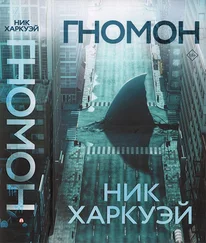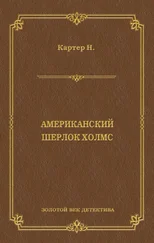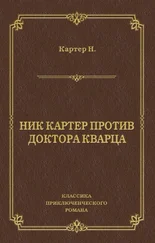He puts down the phone and leans back, staring at the warehouse ceiling and listening to the Thames.
Beware of Greeks bearing gifts .
Oh, sure. It’s easy to say that now.
“Tell you what,” Billy Friend says, three days ago and cab-driver confidential, “I’ve got something which might be useful to you in your professional capacity, not to say your artisanal practice. And a bit of actual paid work, a commission, so to speak, for a reputable client, all above board and squared away. Right? So, what say you do something for me in exchange and call it a finder’s fee? Mutual courtesy, no paperwork, no VAT, everyone’s a winner.” He waggles his eyebrows over the rim of his teacup.
Billy Friend’s eyebrows receive considerable prominence on his face because they are thick and black, and he has no other hair of any kind upon his head. Around about the time that Joe’s father was called to account by Her Majesty for being in loco parentis to a large quantity of imported cocaine (rather than being in loco parentis to, to take a random example, his son) Billy Friend acknowledged that his personal battle with male-pattern hair loss was at an end. On the day of the trial—quite coincidentally, there was no very strong connection between Joe Spork and William Friend back then—he ditched his fiancée, bought a shiny new suit, and had the last of his mortal youth removed by a Knightsbridge barber. Since which time, beyond varying the ridiculous waxes he uses to produce a manly gleam on his alarmingly sexual pate, he has changed not at all. Billy Friend, riding the coat-tails of Patrick Stewart’s supersexed telegenic baldness—though Billy would tell you he was there first.
Joe generally avoids Billy in his professional context. They go out on the town every so often, share a meal, maybe some drinks. Billy is brash and embarrassing, and therefore exactly the kind of person who can force a moody Joe Spork to have a good time, even talk to women he finds attractive. It’s the kind of friendship which endures, despite minimal tending and no apparent central plank. Billy in mufti, ordering another bottle from a cheerily scandalised waitress, is a part of the landscape, awkward and familiar and finally indispensable.
Billy the dealer is a trickier proposition, fraught with complex questions of murky legal ownership and tax-free cash jobs—but on this occasion Joe was so unwise as to pick up the phone without checking to see who it was, got blindsided, and as a consequence is here in this greasy spoon drinking thick, orange tea. An object lesson in paranoia, but not in the end a bad result, because Joe has to confess he is having minor money issues at present, and Billy Friend, when not attempting to sell him a pup or persuade him to take part in some dubious scheme involving Latvian modelling agencies, is a good source of gainful employment as well as a genuine if barmy long-time pal.
“What sort of commission?” Joe says carefully.
“Well, Joseph,” because Billy likes to be formal when he’s conning you, “it is—and at the same time, you understand, it is not —for it’s an equivocal and quirky sort of object, hard to get to know and spiky about the edges, which is what made me think of you… It is a what you might call without fear of immediate contradiction though at the same time without expressing the fullest truth… a doodah. From an estate sale.”
“Estate sale” meaning, most probably, nicked. Although Billy Friend, when he is not dealing in knocked-off antiquities and seducing the daughters of provincial publicans, is a member in good standing of the Honoured & Enduring Brotherhood of Waiting Men, which is to say he is an undertaker. He is therefore well-positioned to come across estate sales before the actual sale has begun, but Joe does not automatically accept that Billy actually buys from the bereaved, because in one of his many other professional hats, Billy is a freelance spotter of thievable items for burglars in London and the Home Counties.
“I’ve got a lot of doodahs, Billy,” Joe says. “My life is in some measure awash in doodahs. How is your doodah different from everyone else’s doodah?” And he realises too late that Billy has set him up.
“Well, Joseph, one doesn’t like to brag…” Followed by a huge laugh which turns heads all around, and most particularly the head of the young, flirtatious waitress, whose personal attention Billy Friend has been working to secure since they sat down.
“Billy…”
“It’s a book, Joseph.”
“A book.”
“Of sorts, yes.”
“Then you’re wasting your time. I don’t do books. I mean, I like books. Books are good and we should have more of them. But I’m not a bookbinder, a paper specialist, or a restorer. I can’t help you with a damaged book.”
“You can help with this one.”
“Is it a clockwork book?”
“It is.”
“Because if it’s not a clockwork book, there’s not very much I can do, is there?” Joe pauses. Some part of the last exchange did not play out as he imagined when he ran it through in his mind.
“What do you mean, ‘it is’?”
Billy waves his arms to indicate the magnificence of what he has to offer. “The item is a combination book and device. The textual part is in acceptable if foxed condition, nice leather cover, looks like a diary. The peculiarity is that the outer edges are punched in a grid, so that the book as a whole functions or appears to function as a set of punchcards. One might think of it as equivalent to the drum on one of your music boxes. Yes?”
Joe Spork nods assent. Billy goes on, waving his hands for emphasis, which he is pleased to call “emf -arse -is,” because it generally gets a rise out of the ladies.
“And in, as it were, the same sack, the same rattling old box, the same shabby loft where the book was located, there is a collection of mucky, disassembled bits and bobs which could, under the right circumstances and through the intervention of a skilled craftsperson such as yourself, form some sort of mechanism which appears, on close and expert examination by me, to attach to the written volume along the spine. Further, there is what I can only describe as a large gold ball forming part of the mechanical apparatus, whose function I have not at this time been able to discern. Thus, a conundrum. A book which is more than a book, and the implication of a machine which does something with it. Hence, to avoid the practice of neologism, Joseph, which as you know I despise, I call it a doodah.”
Joe Spork gazes at Billy through narrow eyes. It does not please him to be so easily led about by the nose. He knows that Billy knows this kind of thing is his particular delight. He anticipates some species of hustle, or possibly just a task of mind-numbing boredom by way of compensation for his pleasure.
“And what do I have to do in exchange for this doodah job?”
“Nothing dreadful, Joseph, just a bit of repair on something, nothing base nor wicked nor criminal—” Billy falters. He must see something in Joe’s face which tells him the Sporkish forbearance is at an end. He holds up a hand in acknowledgement. “Let me show you the patient, all right? It’s a bit special.” And he already has the parcel on the table, so it’s only a second before it stands revealed. It’s quite a sight in a quiet café. “Spicy, eh? Those Victorians, they liked their toys. Their erotomata , to coin a phrase. Their ’ ow’s yer father , though this looks more like ’ow’s yer father, madame, and can I get you something to drink after, and maybe for your sister, too? I knew some sisters like this once, mind. Frightful handful.”
Читать дальше
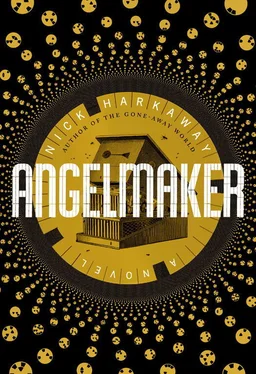

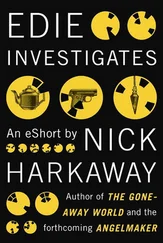
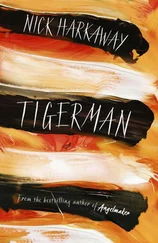

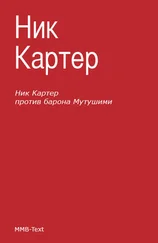
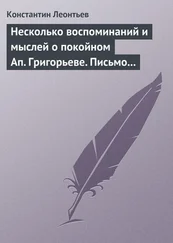

![Ник Харкуэй - Гномон [litres]](/books/400023/nik-harkuej-gnomon-litres-thumb.webp)
